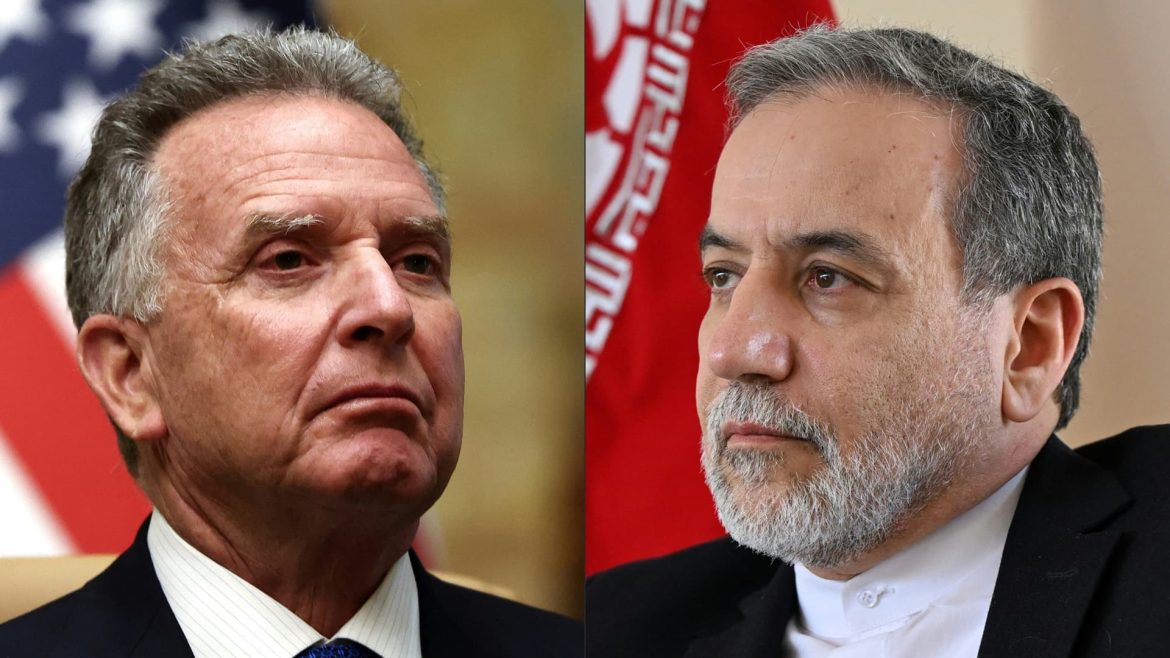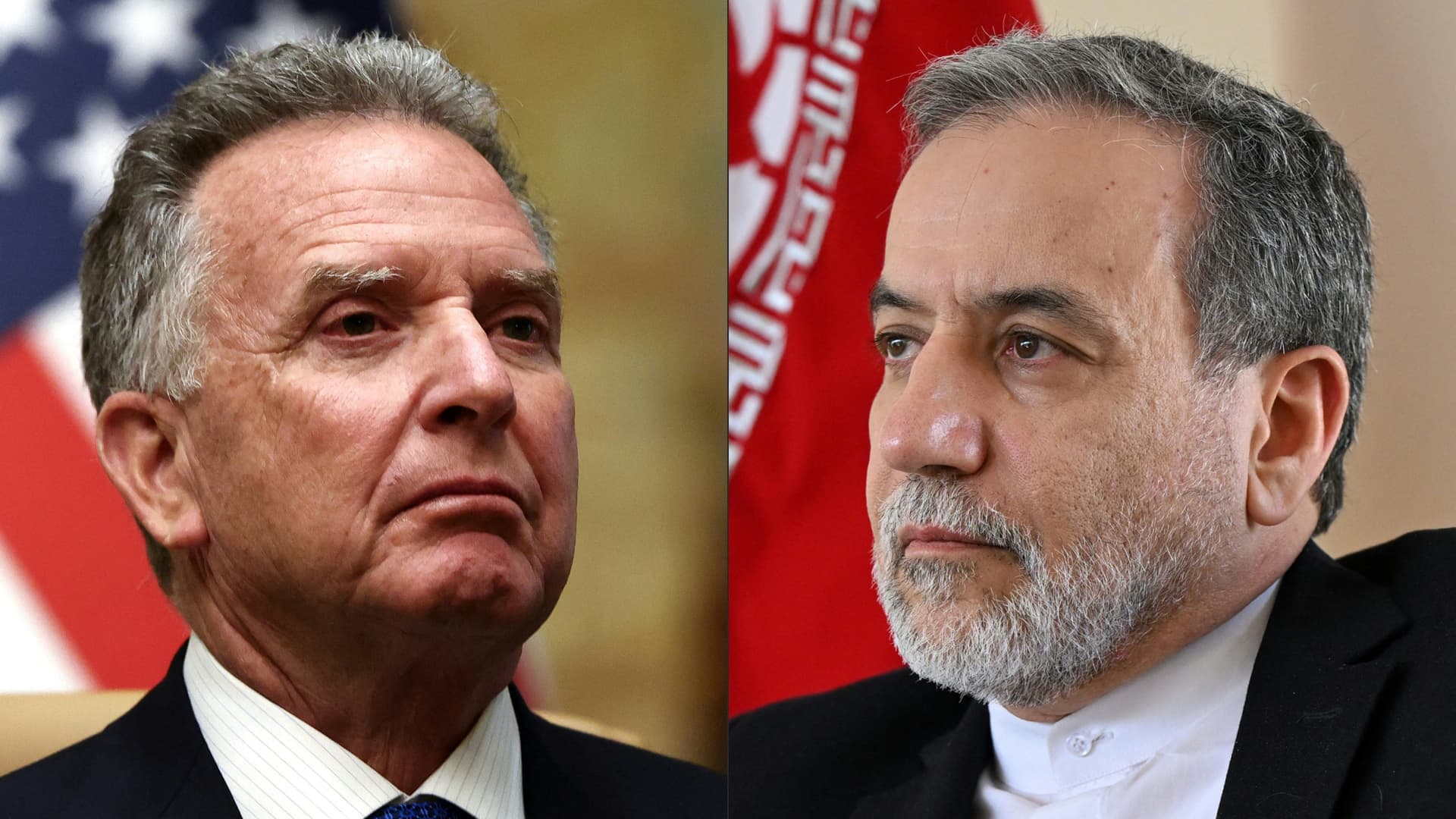Navigating the Tightrope: Trump’s Complex Strategy on Iran’s Nuclear Ambitions
The evolving drama over Iran’s nuclear program presents an intricate challenge for Donald Trump. The conflicting pressures to halt Iran’s march toward nuclear weapons, the desire for a diplomatic achievement, and the looming threat of military confrontation form a volatile mix. This analysis dives into the multidimensional facets of Trump’s approach—spanning negotiations, regional allies, military options, and geopolitical stakes—to clarify the true complexity behind the headlines.
The Crux of the Dilemma: Diplomacy vs. Military Action
At the heart of the situation lies a stark choice: attempt to curb Iran’s nuclear progress through diplomacy, potentially allowing limited enrichment of nuclear material, or lean into military options to enforce a hard stop. According to recent reports, Trump is confronting the uncomfortable reality that any effective deal almost certainly involves Iran continuing some level of uranium enrichment. This signifies a compromise from the absolute zero-enrichment stance that previous administrations pursued.
Trump has publicly set a two-month deadline for Iran to accept a deal, highlighting a desire for speed and a sense of urgency. He remains wary of late-stage negotiations stalling indefinitely—something that has plagued past efforts—so a rapid resolution appeals both politically and strategically. As Trump himself has indicated, diplomacy remains the preferred avenue if it can yield tangible limits on Iran’s nuclear capabilities.
Nonetheless, the specter of military intervention looms large. Trump has not shied away from threatening U.S. or Israeli airstrikes targeting Iranian nuclear facilities if a deal doesn’t materialize. Such statements serve both as pressure tactics on Tehran and as signals to regional allies, especially Israel and Saudi Arabia, that the U.S. remains prepared to act decisively.
Regional Dynamics: Balancing Allies and Escalation Risks
Israel’s position is pivotal and precarious. Despite Trump initially dismissing Israel’s plans for direct military strikes, recent developments suggest Israeli readiness to launch attacks if diplomacy fails. Netanyahu’s government sees nuclear Iran as an existential threat and appears increasingly intolerant of delays or concessions. Yet, Trump’s administration is signaling a preference for Israel to lead any military action, tempering direct U.S. involvement while maintaining a credible threat.
Saudi Arabia additionally factors into the equation, having urged Iran toward a nuclear deal under Trump’s watch. Riyadh’s influence and collaboration with Trump emphasize the broader Middle Eastern alignment against a nuclear-armed Iran, but also underscore the volatility—as Saudi-Iranian rivalry has the potential to ignite wider regional conflict.
This intricate configuration places Trump in a delicate position: he must manage Israel’s aggressiveness, Saudi Arabia’s demands, and Iran’s defiance simultaneously, all under the shadow of potential escalation into full military confrontation.
Public Opinion and Political Stakes for Trump
Public sentiment in the United States appears largely to favor diplomacy over military action. Reports indicate only a small fraction of Americans support military strikes to dismantle Iran’s nuclear program. For Trump, clinching a diplomatic deal not only averts war but offers a significant political victory that previous administrations, such as Biden’s, have failed to achieve. This potential triumph carries intense domestic appeal, enhancing Trump’s political capital by portraying strength coupled with strategic restraint.
However, Trump’s oscillation between optimism about a deal and warnings about looming military action reflects a high-stakes gamble. Should negotiations collapse, the risk of a devastating war in the Middle East—one potentially dragging in the U.S. and destabilizing global markets—is substantial.
The Tactical Tightrope: Negotiating Terms Amid Escalations
Trump’s headlines reveal that Iran has ‘sort of agreed’ to some U.S. terms, suggesting progress but also highlighting ongoing mistrust. Tehran insists on maintaining enrichment rights, a core sticking point. Trump’s demand for rapid commitment leaves little flexibility on timelines, further complicating negotiations.
At the same time, Iran’s defiant threats to strike U.S. bases if conflict erupts indicate a willingness to escalate quickly. This bluster fuels concerns that a breakdown in talks could trigger military retaliation with severe consequences.
Trump’s “less confident” public remarks about securing a deal underscore this precariousness, signaling to both allies and adversaries that the window for diplomacy is closing. Meanwhile, moves such as repositioning U.S. personnel and deploying bombers suggest preparations for military contingency.
Conclusion: A Pivotal Moment with Global Consequences
Trump’s handling of the Iran nuclear talks epitomizes high-stakes diplomacy in a fractured world. The president balances tenuously between forcing Tehran’s hand diplomatically and keeping military options credible enough to deter escalation. Regional allies watch nervously, public opinion favors peace, yet the risk of rapid escalation is undeniable.
Trump stands at a crossroads: achieving a pragmatic nuclear deal that tempers Iran’s ambitions while preserving regional stability would mark a formidable legacy. Conversely, missteps could ignite conflict with far-reaching global repercussions. As the clock ticks on his self-imposed deadline, the world watches to see if this delicate balancing act can succeed or if it will unravel into chaos.
—
Sponsor
Looking to refine your analysis or reports on complex topics like the Iran nuclear talks? editorr offers on-demand proofreading and editing services to ensure your writing is clear, grammatically sound, and compelling. Get real-time corrections from qualified editors, whether you’re working on a political analysis or diplomatic correspondence. Elevate your writing and make your insights resonate with your audience today.





